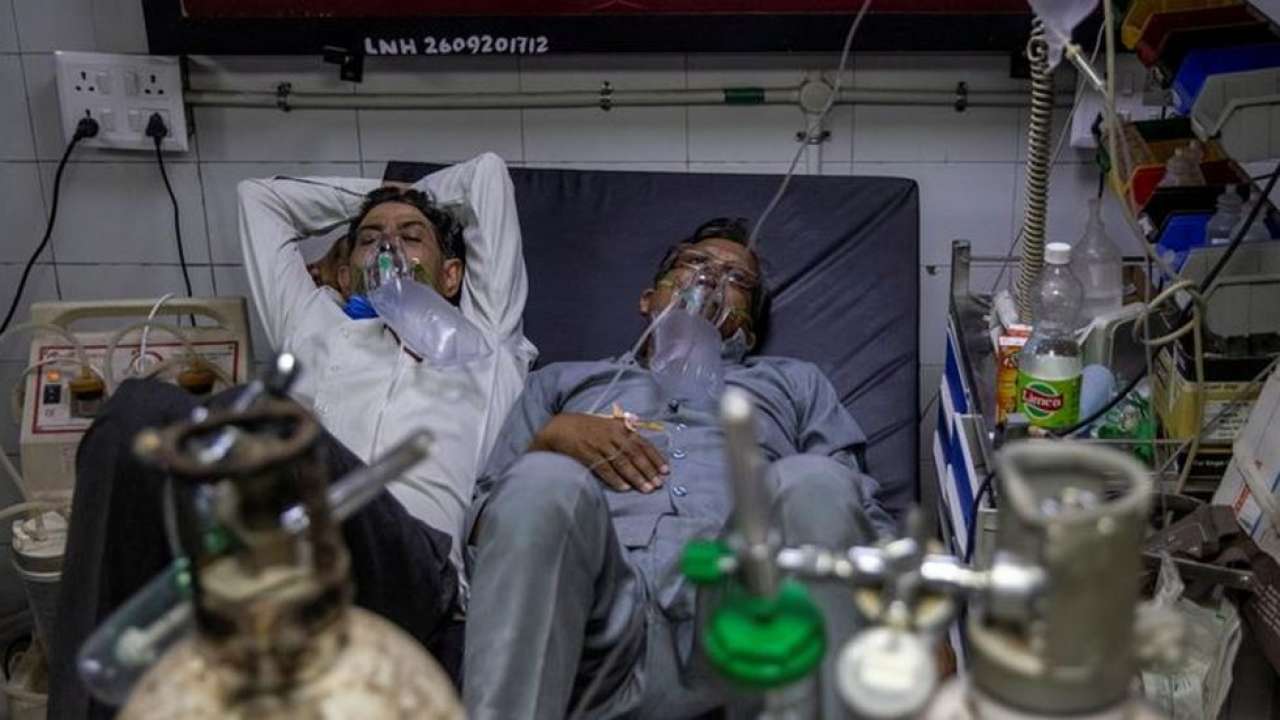
Amid reports of shortage of oxygen in several major hospitals due to a huge caseload of COVID-19, concerns have been raised on why there's a deficiency in the country despite enough production. Dr Randeep Guleria, Director of the All India Institute Of Medical Sciences (AIIMS) has said that while oxygen is very important for those who need it, taking it intermittently is an absolute waste of the gas.
"There is a lot of issue as far as oxygen is concerned, I do agree and this is very important for those who need oxygen. Oxygen is a treatment, it's like a drug. Therefore, it is very important to understand that one of the treatments for COVID-19 is to give oxygen if you need it," he said while addressing issues related to COVID-19 through video conferencing.
"Taking oxygen intermittently is an absolute waste of oxygen. There is no data that shows that this will be of any help to you and therefore you shouldn't do it. Many patients have started keeping oxygen cylinders at home and started taking it half an hour or two hours that itself is more harmful and is again denying oxygen who actually need it," he added.
He also explained the concept of oxygen saturation. "If your oxygen saturation is 92 or 93, or 98-99, the actual oxygen in the blood is not very different. There is an oxygen dissociation curve called the sigmoid curve and after you reach saturation of 90, it is actually flat, even if you go from 92 to 98. For those individuals who are having an oxygen saturation of 92 or 94, there is no need to take high oxygen just to maintain your saturation. It is not going to be of any benefit. If your saturation is above 95, you don't need to take oxygen. If it is less than 94, you need close monitoring but you still may not need oxygen because oxygen is still sufficient in blood if the patient is healthy," he said.
"In some patients, who have a chronic disease, you may want to keep the oxygen saturation at the higher point. If these patients have oxygen saturation around 92-94, don't panic, consult a doctor, you need to monitor oxygen saturation but it is not that you should start taking oxygen to maintain your saturation above 97 or 98. It is not going to be of much benefit," he added.
Dr Guleria appealed to citizens not to rush to hospitals if they have tested positive for COVID-19 as they can isolate themselves at home.
"The majority of people don't need to panic, they can home isolate themselves, monitor at home, keep yourself well hydrated, monitor saturation and consult your doctor if you have any worry," he said.
"By rushing to the hospital, you are creating more chaos and you are not actually benefitting yourself and you are denying a bed to a fellow citizen who may need it and may not be able to get it because of unnecessary hospitalization of people who don't need to be in hospital," he added.